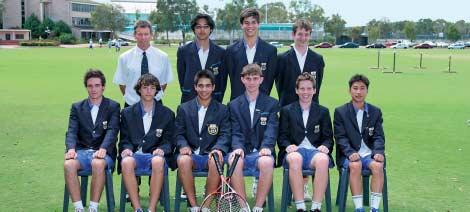
1 minute read
Astronomy
Academic
Academic
Mr Bill Cooper
Observatory Manager “Astronomy is recognised in many countries as providing one of the most effective opportunities for inspiring youth to study physics, chemistry and maths, a valuable preparation for citizens of an increasingly technical society.”
(Prime Minister’s Science, Engineering and Innovation Council. 17th June 2004)
This year has seen lots of opportunities for everyone to be involved in astronomy. There were staff astronomy camps and digital astronomy workshops. Students had the regular camps which this year also included launching video rockets, along with camps at school using the Trinity telescope. Students watched the Mercury transit as it happened. There were also many evening programs for junior schools.
Trinity College has been successful in obtaining a $60,000 federal grant from the Australian School Innovation in Science, Technology and Mathematics (ASISTM) to develop a remote telescope facility for the wider WA community. This grant will allow Trinity to provide training and access to the telescope for nine schools in WA. These are Kolbe Catholic College, Irene McCormack College, Newman College, John XXIII College, Nagle College, Clontarf Aboriginal College, Ursula Frayne Catholic College and Peter Moyes Anglican Community School. With ASISTM funding Trinity can develop a remote access facility; that is students from the College will be able to operate the telescope in real time over the internet from home.
Ben Goodsell, our astronomy scholar went to the US Space Camp and was acknowledged by the American organisers to be a fantastic ambassador for Trinity College. Ben has handed his scholar status over to Tom Drage. Tom has wasted no time in establishing a presence in Astronomy at Trinity, by building a Radio Jove radio telescope which now sits on the roof next to the observatory. This will open up a whole new window into the Universe for students. Not only will we be able to image sunspots but we will also be able to record their radio signatures. Students will be able to listen to and record magnetic storms on Jupiter. We are looking forward to an exciting year of possibilities in 2007.
Mr Bill Cooper
Observatory Manager










